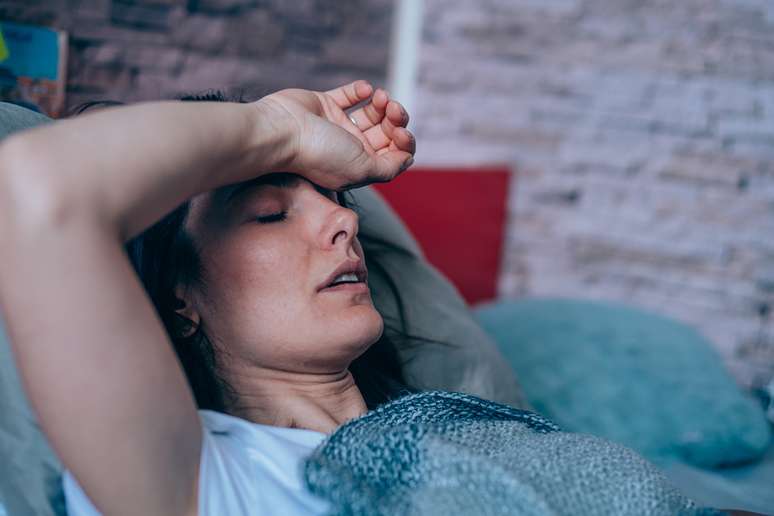On World Sleep Day, research reveals a surprising number of people suffering from a chronic lack of restful sleep around the world
Summary
A survey published by ResMed on the occasion of World Sleep Day showed that Brazil is one of the countries with the longest average sleep duration, but still appears to be the most disturbed by lack of rest. Sleep Medicine specialist, Márcia Assis, highlights the factors that influence sleep quality, such as environment, diet, physical activity, stress and electronics.
A survey published by ResMed Last March 15, World Sleep Day, it was revealed that Brazil appears among the four countries with the longest average sleep duration, 7.1 hours per night. The other three are: Hong Kong, India and Thailand. The study was conducted on 36 thousand people in 17 countries
However, Brazilians still appear to be the most concerned about a lack of ideal sleep, averaging 1.25 hours less than the recommended 8 hours. 38% of respondents in Brazil have consulted a professional for sleep problems and 10% have been tested and diagnosed with a sleep disorder.

Nearly 40% of respondents overall said they get no more than three nights of restful sleep per week – and some get only one; 50% reported feeling excessively sleepy during the day; 40% said they had negative feelings in the morning and 39% said they were more irritable.
Across the entire surveyed population, only 13% of respondents reported sleeping well every night. Do you identify with these numbers?
In an interview with Earthneurologist specializing in sleep medicine and vice-president of the Brazilian Sleep Association (ABS), Márcia Assis, explains that the quality of sleep can be influenced by several factors, including:
Sleep routine: Always sleeping and waking up at the same time helps regulate the body’s biological clock.
Sleep Environment: A comfortable, dark, silent environment with an adequate temperature can promote the quality of sleep.
Food: Avoiding heavy meals before going to bed and consuming foods that promote relaxation, such as herbal teas and foods rich in tryptophan, can contribute to a good night’s sleep.

5 foods that disturb sleep
Physical activity: Exercising regularly can improve the quality of your sleep, as long as it isn’t done before bedtime.
Stress and anxiety: Emotional problems and excessive worry can interfere with sleep. Relaxation practices and stress management techniques can help.
Using electronics: Exposure to blue light emitted by electronic devices before going to bed can harm the quality of your sleep.
Medical conditions: Sleep disorders such as sleep apnea, insomnia and restless legs syndrome can affect the quality of your sleep.
Medicines: Some medications can interfere with sleep. It is important to always consult a doctor about the effects of medications on the quality of your sleep.
Women have more insomnia; men snore more
The expert says that age and gender also influence a person’s sleep. Women, for example, have a higher incidence of sleep disorders, such as insomnia and sleep apnea. On the other hand, men may be more prone to sleep disorders related to snoring and apnea.
“Hormonal changes throughout life, such as menopause, can also affect women’s sleep,” says the doctor.
Sleep quality also changes with age. Children and adolescents tend to need more sleep than adults, and older adults may have more fragmented and shallower sleep. Neonatal sleep, for example, involves several natural developmental factors.
Newborns go through shorter and more frequent sleep cycles than adults. They have more fragmented sleep and go through longer REM (rapid eye movement) sleep phases. Additionally, toddlers have more irregular sleep patterns and spend most of their time sleeping.

“Newborns have a much greater need for sleep than adults. They can sleep up to 16-20 hours a day, while adults generally need 7-9 hours of sleep per night. They are still developing their circadian rhythm, which means they do not yet have a regular daytime and nighttime sleep rhythm,” explains the professional. Therefore, many mothers and fathers suffer from sleep deprivation while caring for their babies.
Consequences of sleep deprivation
In addition to tiredness and daytime sleepiness, sleeping poorly or having poor sleep quality can have several negative health consequences, including:
Mental health problems: Sleep deprivation is associated with a higher risk of developing mental health problems such as anxiety, depression and irritability.
Weight problems: Sleep deprivation can affect hormones that regulate appetite, leading to cravings for high-calorie foods and contributing to weight gain.
Cognitive decline: Inadequate sleep can affect cognitive function, memory, reasoning and decision making, impairing performance on mental tasks.
Increased risk of chronic diseases: Lack of quality sleep can increase the risk of developing chronic diseases such as diabetes, obesity, heart disease and hypertension.
Weakened immune system: Sleep plays an important role in regulating the immune system. Lack of adequate sleep can weaken the immune system and increase susceptibility to infections and diseases.
Increased risk of accidents: Daytime drowsiness and lack of alertness due to inadequate sleep can increase the risk of accidents on the road, at work and in other situations.
The neurologist emphasizes that adopting habits that prioritize quality sleep is important to prevent these negative consequences and promote good health and long-term well-being.
Unregulated sleep? See 5 tips for sleeping better
Source: Terra
Ben Stock is a lifestyle journalist and author at Gossipify. He writes about topics such as health, wellness, travel, food and home decor. He provides practical advice and inspiration to improve well-being, keeps readers up to date with latest lifestyle news and trends, known for his engaging writing style, in-depth analysis and unique perspectives.










